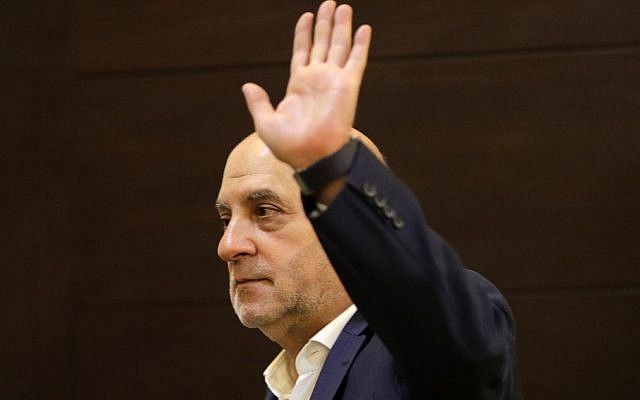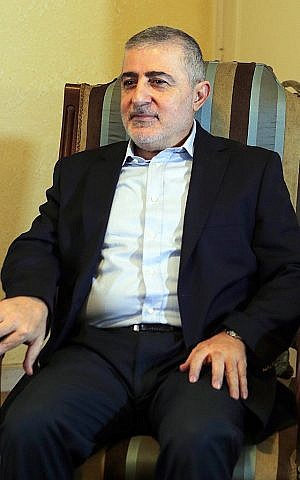At parliamentary bloc meeting, lawmakers for the terror group vow American decision will ‘change nothing in our convictions or in our rejection of and resistance to Israel’

BEIRUT, Lebanon — Lawmakers from the Lebanese Shiite terror group Hezbollah on Thursday condemned US sanctions against three officials from the movement, but said they would “change nothing” regarding the group’s rejection of US policies in the region.
The parliamentary bloc of Hezbollah — which seeks Israel’s destruction and is funded and backed by Iran — said the US decision was “unacceptable” and “reprehensible by all sovereign and moral standards,” according to a statement released after its weekly meeting.
The lawmakers emphasized that the sanctions would “change nothing in our convictions or in our rejection of and resistance to Israeli occupation and terrorism, or towards American policies.”
The US announced fresh sanctions Tuesday against Hezbollah, targeting elected officials from the movement for the first time.

Lawmakers Amin Sherri and Muhammad Hasan Raad were accused of “exploiting Lebanon’s political and financial system” to benefit Hezbollah, according to a statement from the US Treasury.
Also placed on the blacklist was Wafiq Safa, a top Hezbollah security official close to the movement’s leader Hassan Nasrallah.
Nasrallah is expected to address the sanctions in an interview Friday with the movement’s Al-Manar TV.

Hezbollah, a major political player in Lebanon that took 13 seats in the country’s May 2018 parliamentary elections and secured three cabinet posts, is considered a terrorist organization by the US, European nations and Israel, though some in the West distinguish between its military arm and its political wing.
The latest sanctions brought to 50 the number of Hezbollah-linked individuals and entities blacklisted by the Treasury since 2017 as part of the US pressure campaign against Iran and its proxies.
The Hezbollah lawmakers added that the US decision was an “expansion of aggression against Lebanon.”
Lebanon’s President Michel Aoun said Wednesday he “regrets” the US move, “especially in terms of targeting two elected deputies.”
He was joined in his condemnation by Parliament Speaker Nabih Berri, who said the unprecedented sanctions constituted “an aggression against parliament and certainly an aggression against Lebanon.”
Berri, a Shiite, and Aoun, a Maronite Christian, are both allies of Hezbollah.
Prime Minister Saad Hariri, a prominent Sunni opponent of Hezbollah, said the US had taken a “new course” by sanctioning lawmakers, but added it would “not affect” his government, which includes ministers from Hezbollah.
As reported by The Times of Israel
